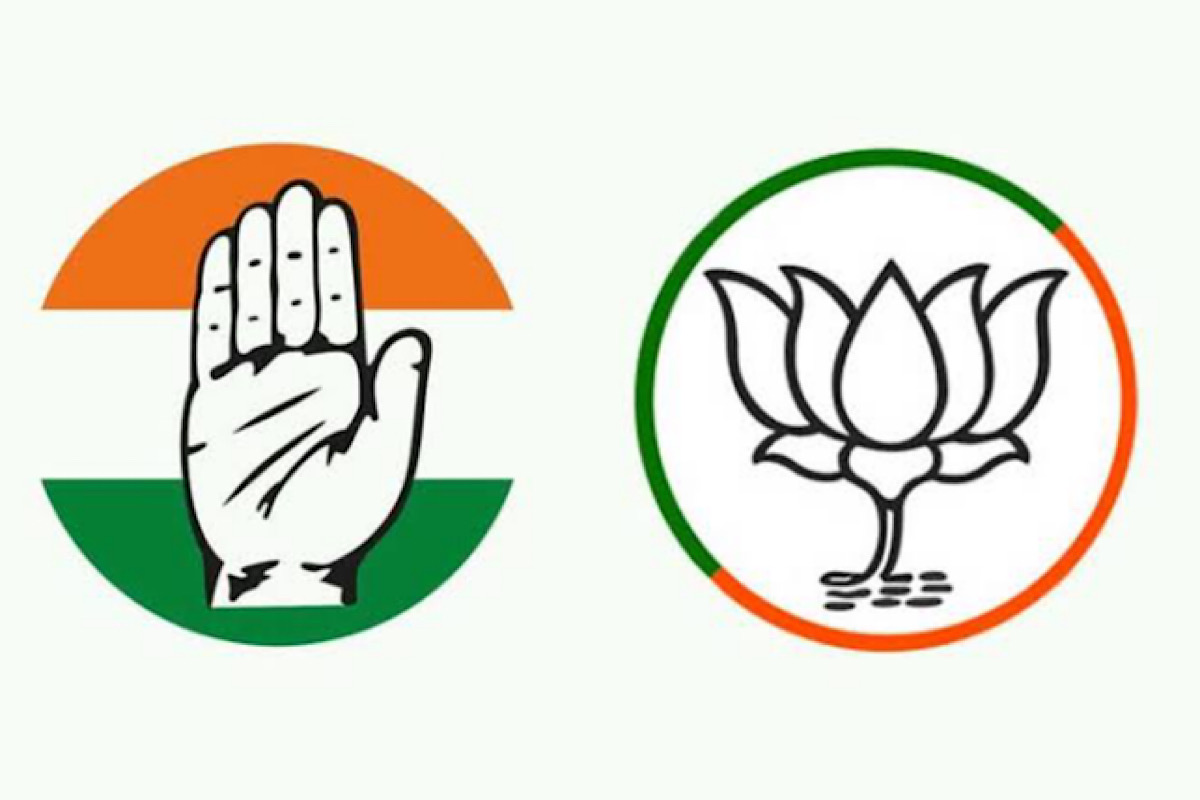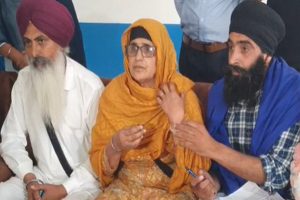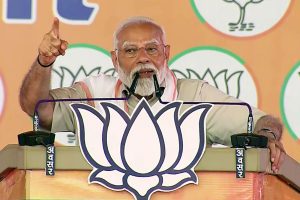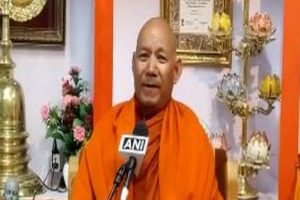As the countdown for the upcoming Lok Sabha elections begins Chhattisgarh’s political arena is undergoing a significant transformation characterised by divergent paths for the Bharatiya Janata Party (BJP) and the Congress.
While the BJP is strengthening its position through strategic maneuvers and organisational prowess, the Congress grapples with internal dissent and leadership challenges following its recent setback in the state assembly elections. Nevertheless, the grand old party’s recent nominations of key candidates have injected a sense of optimism within the party reflecting a potential resurgence amid a tumultuous political climate.
Internal conflicts within Congress have emerged as a notable hindrance to the efforts for a cohesive campaign. Battlegrounds like Bastar and Surguja have witnessed intra-party strife with infighting diluting the party’s unity and efficacy. The candidature of Chhattisgarh Congress party president and incumbent MP from Bastar constituency Dipak Baij faces a challenge from former Minister Kawasi Lakhma further exacerbating the party’s woes and diverting attention from electoral preparations.
Meanwhile, in Sarguja, the defection of former Congress MLA Chintamani Maharaj to the BJP, followed by his nomination as the Lok Sabha candidate from Sarguja, underscores the challenges of retaining key leaders and maintaining unity within the Congress.
The leadership dilemma in Congress compounds its electoral challenges as senior leaders are struggling to resonate with the younger cadre of party workers. Despite initial optimism surrounding Rahul Gandhi’s Bharat Jodo initiative, the party’s failure to mobilise its base effectively has left supporters and party workers disillusioned and uncertain about the party’s direction.
Allegations of corruption and defections have further eroded public confidence in the party’s ability to govern effectively with senior leaders in Chhattisgarh leveling charges of corrupt practices within the party’s upper echelons.
However, the recent nomination of candidates by the Congress party signals a turning point in its electoral fortunes. Notable choices, such as former Chief Minister Bhupesh Baghel from the Rajnandgaon constituency, Jyotsna Mahant from Korba, and former Home Minister Tamradhwaj Sahu from Mahasamund, injected fresh energy into the party’s campaign. These strategic nominations underscore the party’s commitment to fielding candidates with proven track records and regional influence, positioning the party for a competitive electoral battle.
In contrast, the BJP has capitalised on its organisational prowess and astute maneuvering to gain an upper hand in Chhattisgarh’s political landscape. The party’s “Abki Baar 400 Paar” mantra has resonated with its cadre, instilling a sense of purpose and determination to secure a resounding victory in the upcoming elections. By sidelining senior leaders and empowering the younger generation, the BJP has cultivated a dynamic and motivated workforce ready to navigate the electoral challenges ahead.
Strategically managing caste dynamics and embracing Hindutva, the BJP has consolidated its support base effectively countering Congress’ attempts to utilise caste sentiments as the party announced plans for a caste census if elected to power. Prime Minister Narendra Modi’s leadership continues to galvanise party workers and supporters offering a clear and compelling narrative centered on development and national security.
As Chhattisgarh prepares for a fiercely contested Lok Sabha election, the divergent trajectories of the BJP and the Congress reflect the dynamic nature of state politics. While the BJP maintains momentum with strategic advantages, the Congress’s recent nominations offer a glimmer of hope for its resurgence. With both parties vying for supremacy, the outcome of the elections will not only shape the political landscape of the state but also carry significant implications for the national political discourse.











